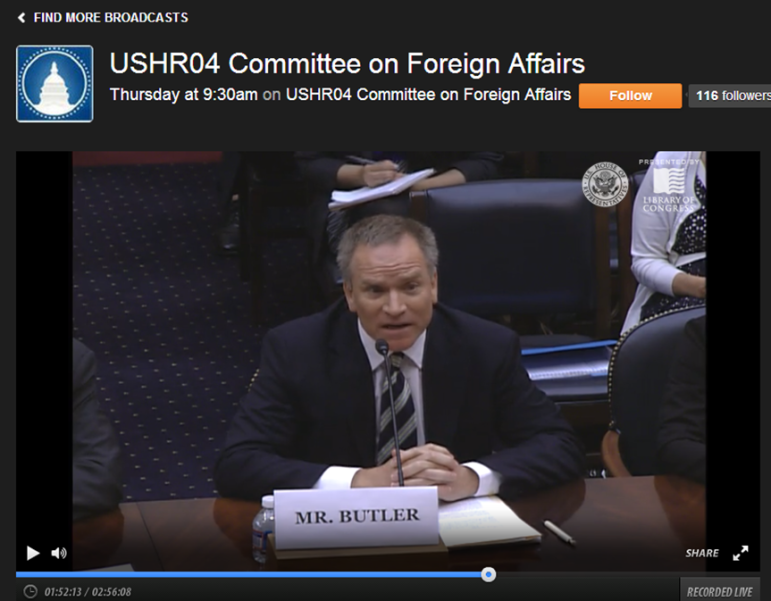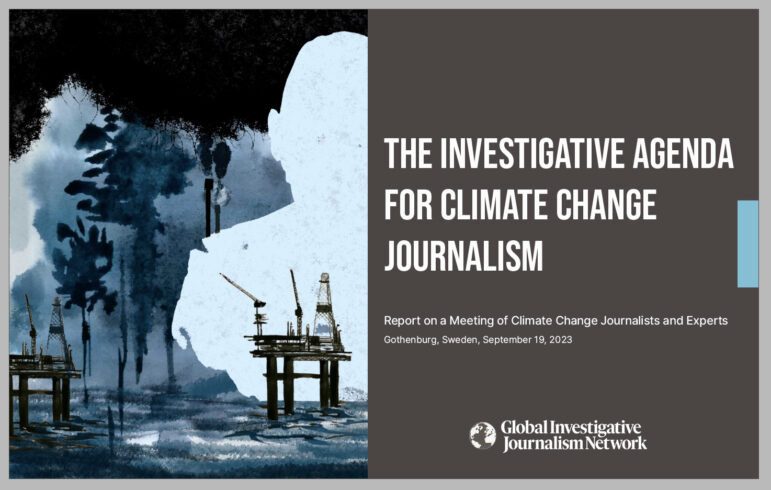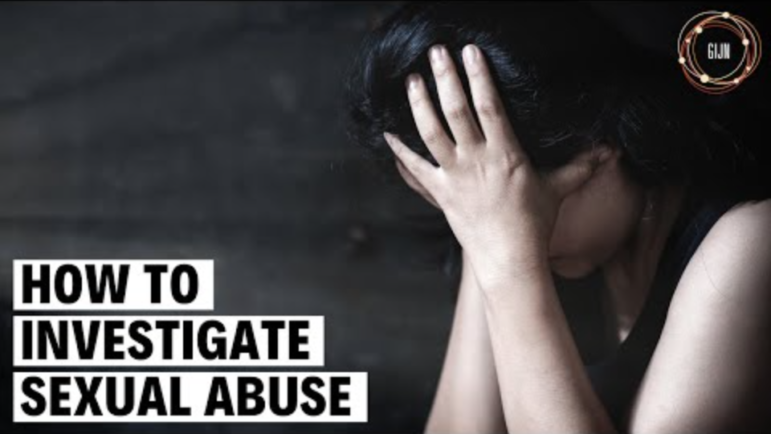

Training Journalists as a Crime
Editor’s Note: When is training journalists considered a crime? When you’re in Egypt today. It’s been just over a year since an Egyptian court convicted 43 people from 5 NGOs for acting as unregistered foreign agents to foster unrest — a charge they strongly deny. Among the groups are Germany’s Konrad Adenauer Foundation, Freedom House, and a GIJN member, the International Center for Journalists, which was running workshops in Egypt to train reporters. In testimony before the U.S. Congress last week, ICFJ Vice President Patrick Butler, one of those sentenced to prison, talked about the case, with special attention to the damage it has inflicted on Egyptian journalists Yehia Ghanem and Islam Shafiq.
Patrick Butler
Vice President-Programs, International Center for Journalists
U.S. House of Representatives Subcommittee on the Middle East and North Africa
Date of Hearing: July 24, 2014
Title of Hearing: The Struggle for Civil Society in Egypt
Chairman Ros-Lehtinen and distinguished members of the Committee: Thank you for allowing me and my colleagues the opportunity to testify before you today. As you know, more than a year ago, I and 42 other NGO workers were convicted in an Egyptian court for working on programs designed to build democracy, monitor elections and train political parties and journalists. We were given sentences ranging from one to five years in prison. After an initial stir and expressions of outrage from the State Department and members of Congress, the case has largely faded away. Most people who knew about the case probably think it was resolved long ago.
But more than a year later, nothing has changed except the lives of the convicts – mostly for the worse. Most Egyptians convicted in the case are in exile, often separated from their families, their immigration status in limbo, unable to earn a living. For Americans and other non-Egyptians, the convictions have prevented international travel or thrown up obstacles in everything from applying for jobs or loans to getting a security clearance.
The case was an early indication of changes to come in Egypt – we were the canaries in the coal mine. In the past year, Egypt has seen a brutal crackdown on opposition groups, civil society workers and journalists, including the conviction last month of three Al Jazeera journalists who dared to interview members of the banned opposition. Everything the Egyptian leadership is now doing to intimidate the country into acquiescence could have been foretold by the verdicts last year against the NGO workers.
I was one of five people working for the International Center for Journalists who were convicted in the case. The others were Americans Michelle Betz and Natasha Tynes and our Egyptian colleagues Yehia Ghanem and Islam Shafiq. Michelle, Natasha and I were not in Egypt when the charges were filed, but we were immediately labeled fugitives from justice. Yehia and Islam were in Egypt and attended every hearing in the stifling hot “cage,” sometimes sharing the cramped space with murderers and rapists. Like the other NGOs, we brought the Egyptians out of Egypt before the verdict was announced, and they have not returned home since.
For me, the conviction has been an inconvenience. I probably will never go back to Egypt, and I may not be able to travel elsewhere in the region either, for fear of being extradited to Egypt. I know I will still have a job even if I can’t travel to the Middle East, but Michelle and Natasha are free-lance media development contractors, and when they can’t travel to the region, they lose work. The convictions have seriously affected their livelihoods.
For our Egyptian colleagues and friends, though, the convictions are nothing short of catastrophic. Yehia Ghanem, an esteemed Egyptian foreign correspondent and editor with nearly 30 years of experience, is in perhaps the worst situation of any of the convicts. Because of his seniority, his two-year sentence was not suspended, as it was for many of the other Egyptians. That means that he will go to jail if he returns to Egypt.
Yehia has not seen his wife and three children or his ailing mother in more than a year. His distinguished career in Egypt is over, his pension lost. ICFJ helped him get a fellowship as a Journalist in Residence at the City University of New York for the 2013-14 academic year, but the fellowship was not enough to permit him to support his family in New York. While he has been here, his family members have continued to suffer harassment in Cairo, including three raids on their home by security officials seeking Yehia, even though they know he is in the U.S. The most recent raid happened last Sunday night. Those raids and one against family members of Nancy Okail, another Egyptian defendant, prove that while the U.S. government seems to have forgotten the case, the Egyptian government certainly has not.
Yehia is now looking for a job and hoping to bring his family to the United States. His greatest hope is to receive a green card so that he has the security to work either in the United States or in a Middle Eastern country that will not extradite him to Egypt. So far, we have not been able to get him a green card.
Islam Shafiq has brought his wife to the United States, and they now have a young son. They are applying for asylum, with Islam’s family continuing to receive threats against him on a regular basis. Islam’s father died while he was in exile, and he was not able to return for the funeral.
Every one of the convicted NGO workers – Americans, Egyptians and citizens of other countries – has a story like this to tell. This case has ruined many people’s lives, and for what? In our case, for trying to help Egyptian journalists do a better job of reporting on issues that matter to their audiences. The verdict, as we all know, was a sham, based entirely on political calculations and not at all on the evidence presented in the case.
But the greatest tragedy of this case is not its effect on individuals like Yehia Ghanem or any of the four of us before you today. The greatest tragedy is what this case has meant to the people of Egypt. The country’s authoritarian government learned the consequences of its prosecution of Americans and Egyptians working together to improve their society: Nothing. There were no consequences.
Now, with political opponents, human rights workers and journalists regularly jailed and most of Egyptian society scared into silence, we are seeing how Egypt is putting into practice what it learned from our case.
In closing, I urge you to do all you can for our Egyptian colleagues who are suffering the most from this case. When the charges were filed, U.S. government officials and members of Congress visited them and promised to do all they could for them. Many feel those promises have been forgotten. Help us get them green cards so that they can have a stable life and support their families in the U.S. They paid a price working on U.S.-government-funded programs, and they deserve our thanks.
Again, thank you to this committee for keeping our case alive.










